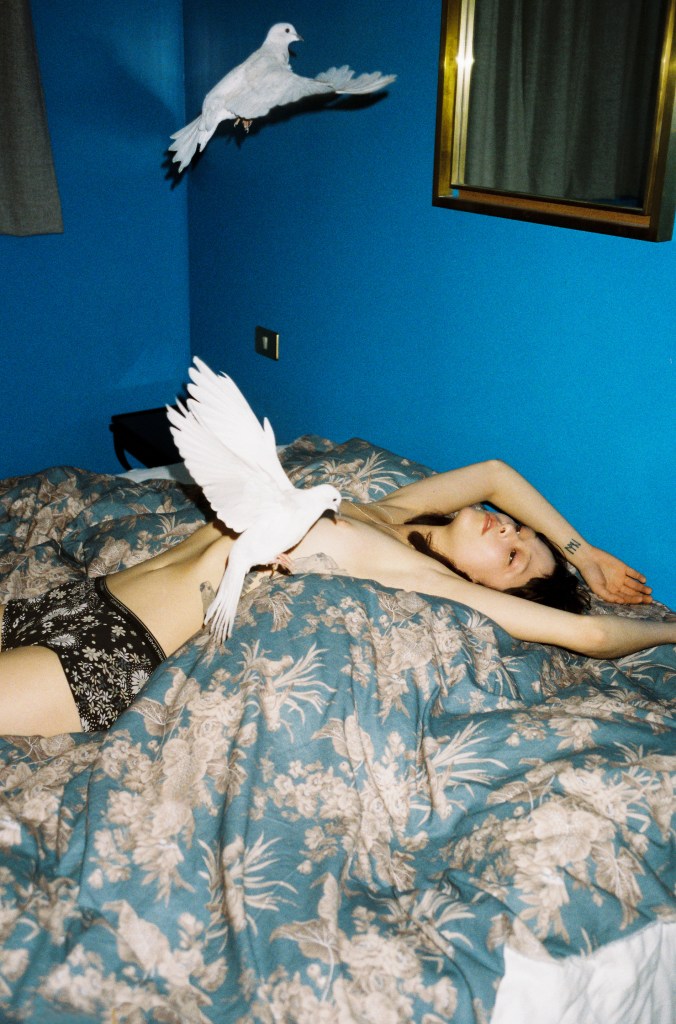Lin Zhipeng, who goes by No. 223 in homage to the cop character played by Takeshi Kaneshiro in Wong Kar-wai’s cult film Chungking Express, is all about immediacy. “That’s the way I take pictures. I like snapshots,” he said the day before the opening of his latest exhibition. (He keeps a small film camera — a Nikon 35Ti — in his pocket at all times.) Born in Guangdong province and based in Beijing, the photographer and writer first made a name for himself through his blog (North Latitude 23) and self-published books and zines. His visuals have propelled him internationally: in addition to his own work, he has produced photo shoots for brands like United Nude, Converse, and Nike.
For his latest exhibition, No.223@Grand Amour, curated by Anna Mistal and on view through November 22 in Paris, he was given free rein to create a series in the hotel over three days. He and the lithe, tattooed models who answered his open casting call ditched all impulse control and took over various rooms. The result is a medley of sensually arched bodies, playful shadows, fishnets, bathtubs, balconies, and lovers intertwined in a choreography of erotic hedonism and insouciant youth culture. (The book 3030: New Photography in China once characterized his vibe as “all-night parties and fashionable indolence.”)
Videos by VICE
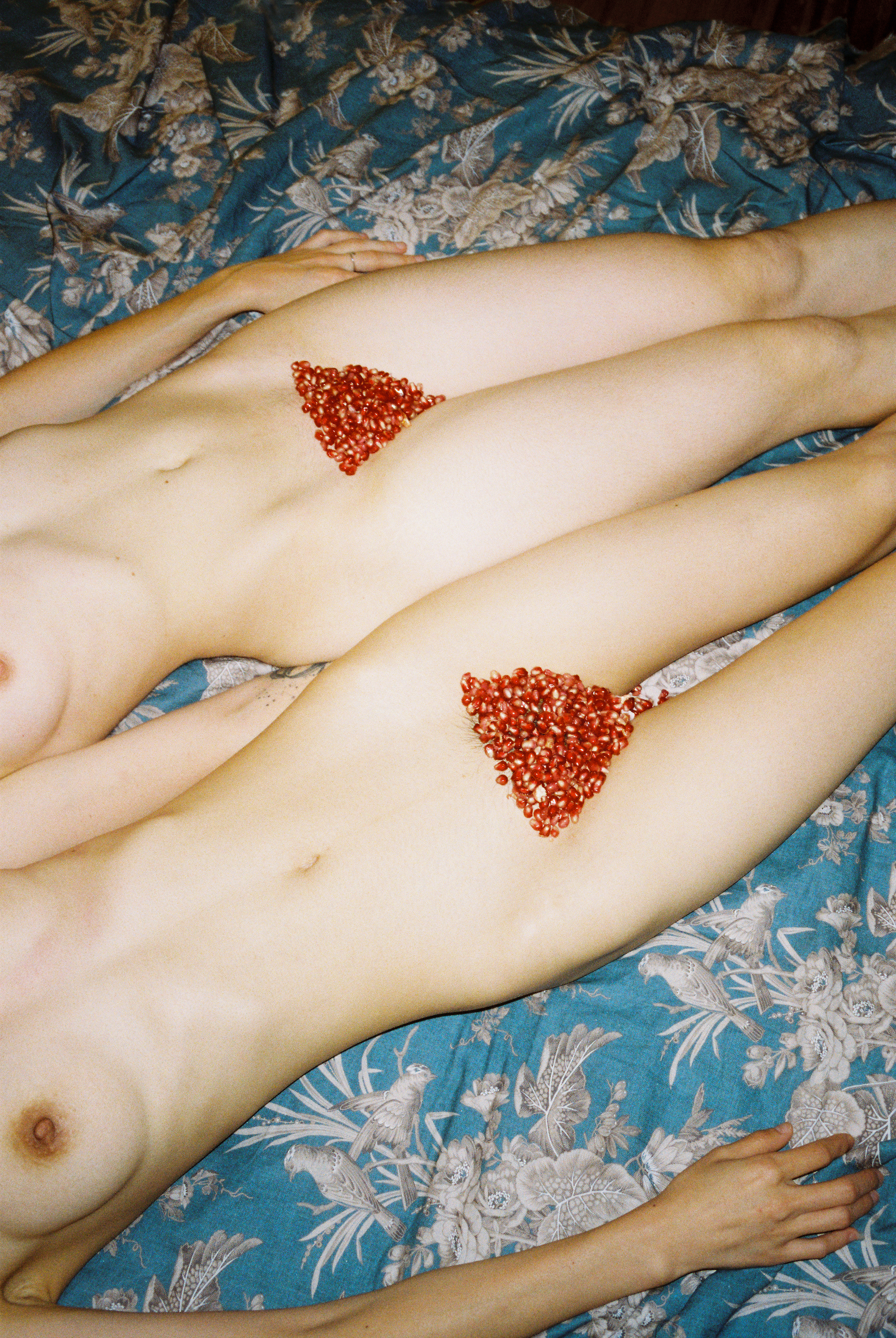
The evening of the exhibition opening, three models roamed the narrow, dim hotels halls naked, or nearly so: staring intensely at images of themselves hung on the walls, languorously eating pomegranates, snaking between people who pretended not to be unnerved by the libertine images coming to life. We spoke to No. 223 about why photography is more fun than manga, why sharing bedroom gossip is a way of bonding, and how Instagram almost rivals the Chinese government as a censor.
How did you do the casting?
We called for models on social media. I said, ‘I will come to Paris to shoot a special project at Grand Amour Hotel and, if interested, send an email. But: All Asian models.’
That was the only requirement.
Yes: All Asians. And older than 18!
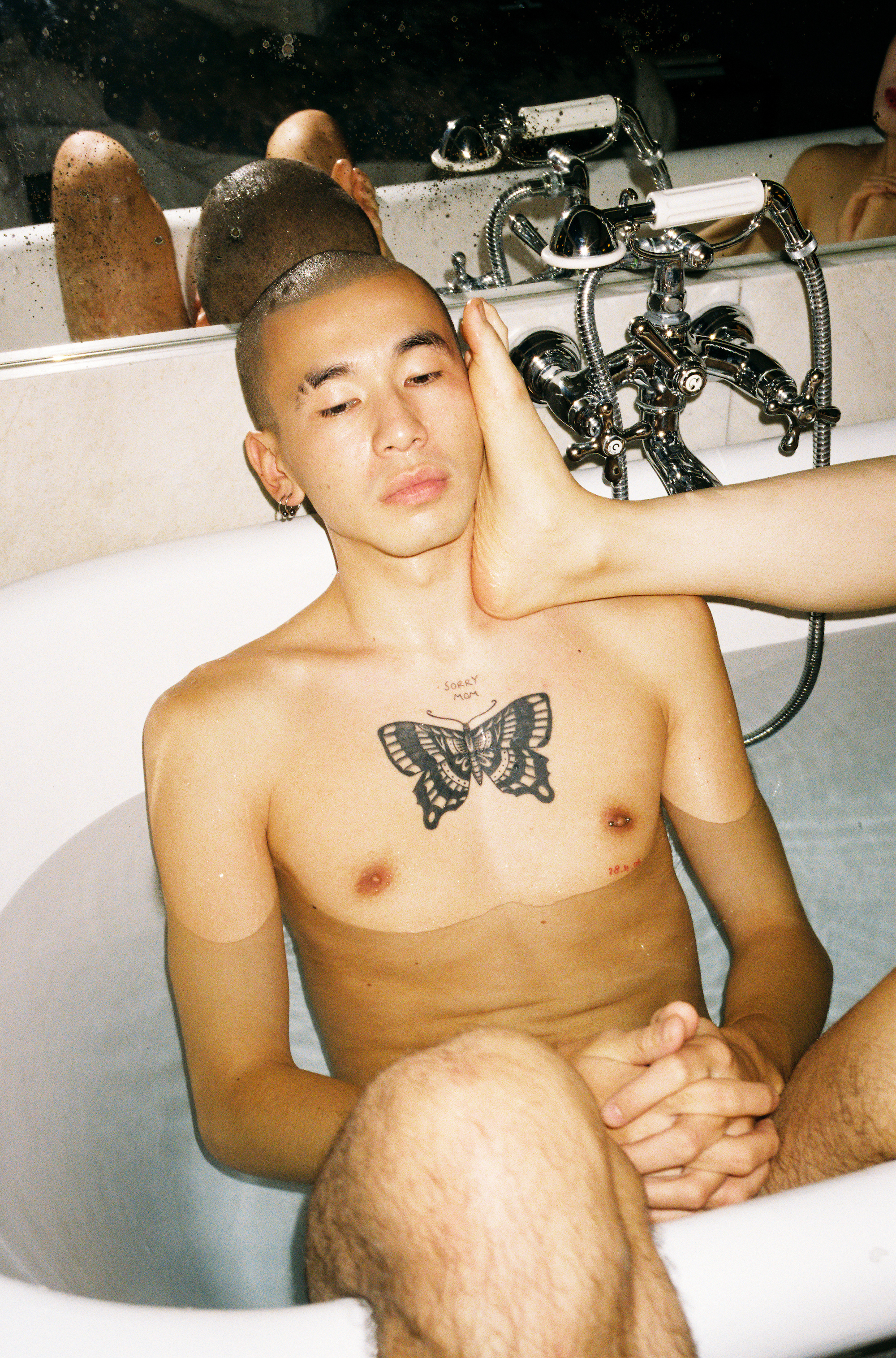
What was it like photographing complete strangers in the nude?
I have done it before, for my project about gay and lesbian couples in China. I’d posted on my social media asking couples or lovers interested in participating to message me, and I went to different cities to meet them.
What language did you speak in on this shoot?
English, although some of them are Chinese and we spoke in Chinese. That’s better for me — because I can talk a lot of gossip! In English, I don’t know how to express it!
Ha, what kind of gossip?
With the girl couple, I asked, ‘How do they have sex?’ But I also share my own stories. Because I’m gay, and I have a boyfriend! [Laughs] It helped them to feel comfortable.
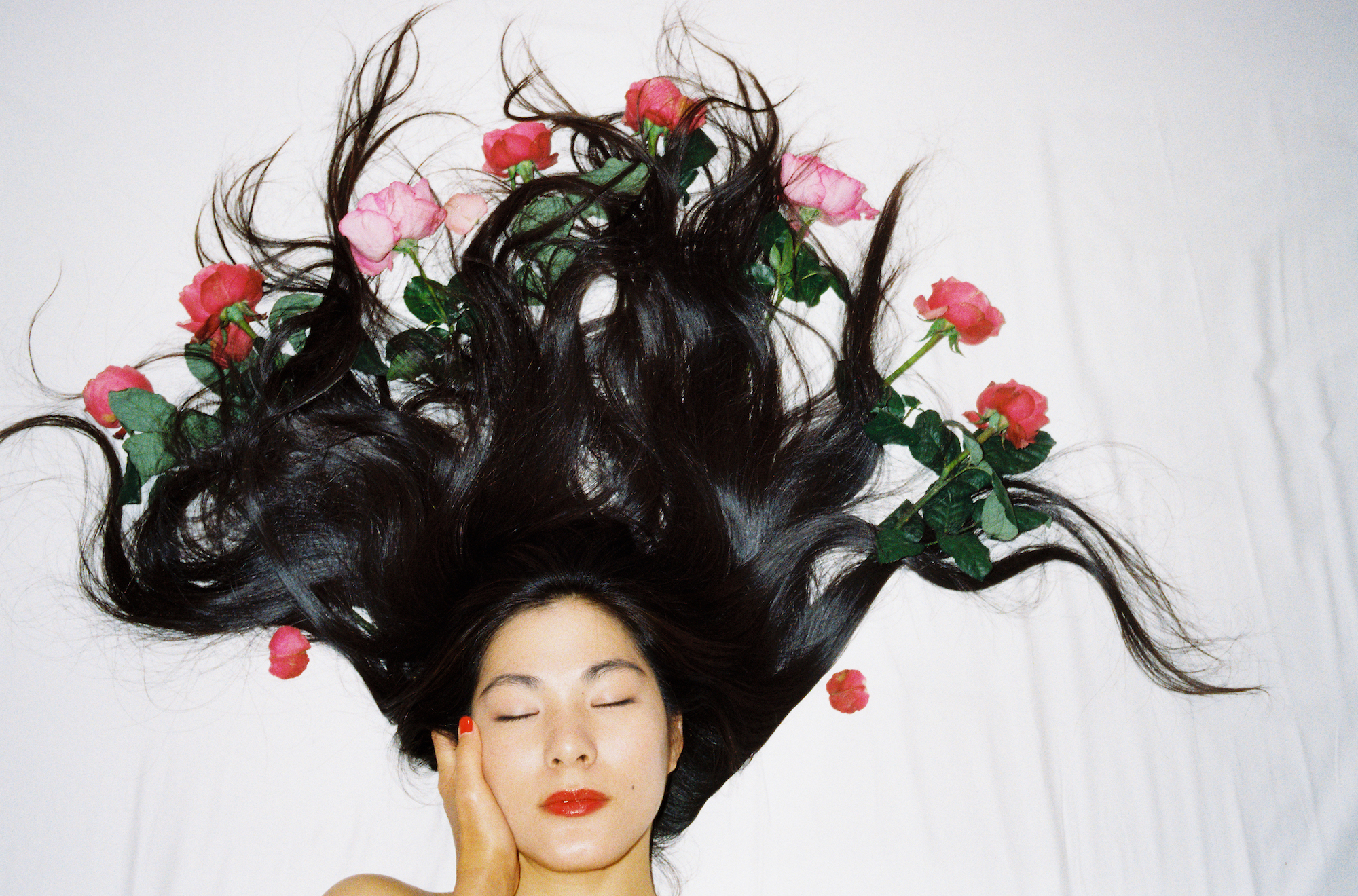
I read you studied financial English. How did you transition to photography?
My father worked in a bank; he wanted me to study finance. But actually I was not interested in finance, so after graduation I chose a magazine job. I worked as an editor and writer for seven years — for magazines about fashion, lifestyle, art, and creativity. I also like to buy a lot of foreign independent magazines. I collect a lot of i-D magazines in my house! And I make magazines with my partner and self-publish zines and books. It’s my hobby — I love printed matter. I don’t like finance! I never studied art; I learned by myself. When I was a kid, I drew and collected manga. But photography is faster, and that’s more satisfying.
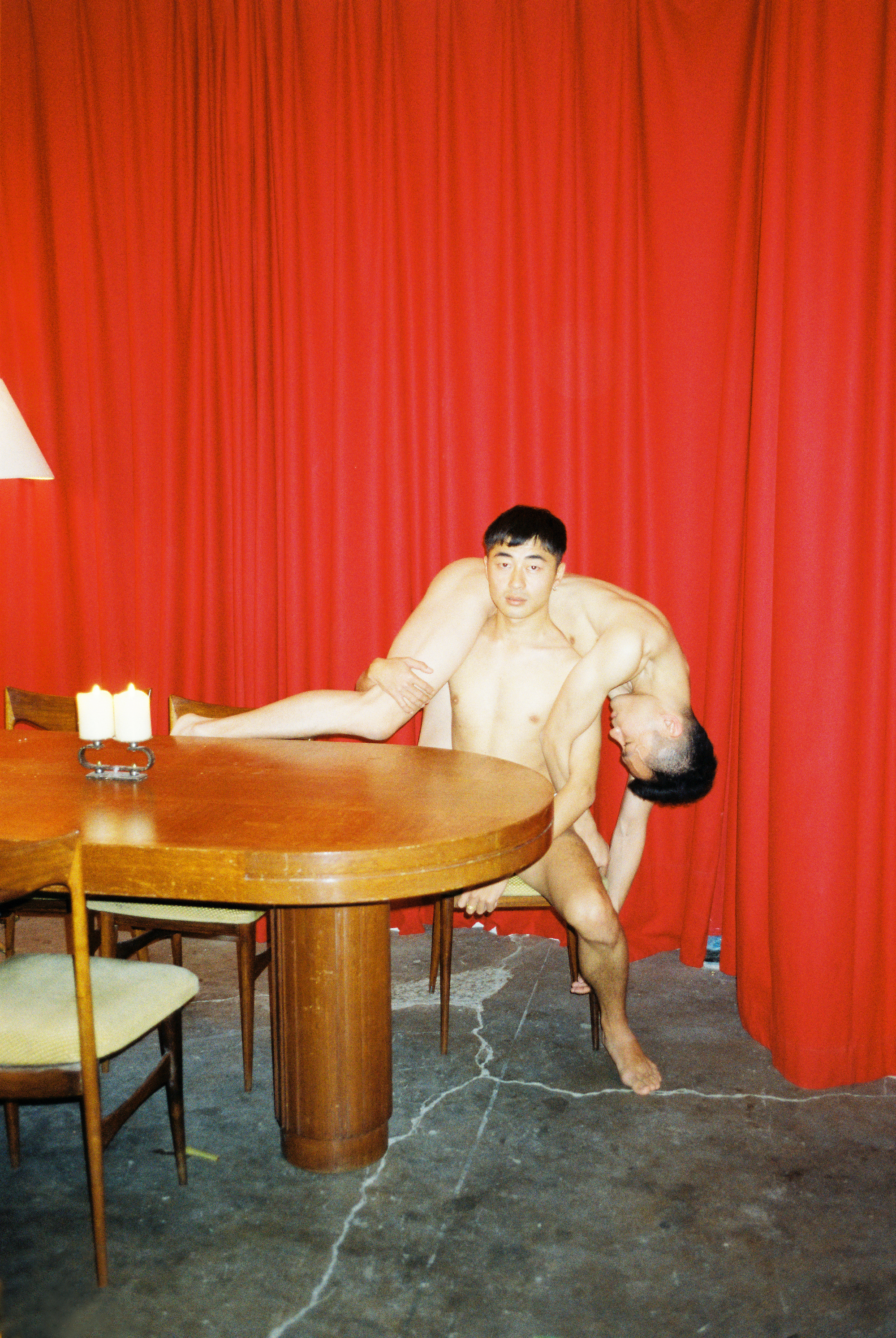
You use a lot of props, especially fruits and flowers.
I want to have fun with my photography. I don’t want to put any pressure [on my models]. If I meet you and want to take a photo of you, I don’t know what I want before we meet… Everything happens on the spot. I just prepare some props; that’s all. I really love flowers! Flash, combined with flowers… It’s rough with romantic, which is very strong in an image. I love taking pictures with food, combining it with the body. Food is sexy. And I love special patterns: fabric, wallpaper, the floor.
You used real birds here too!
Real birds — doves! Actually, I wanted 10, but they’re really expensive in Paris. So there were only two. I wanted birds flying in the room. It’s romantic, I think! The guy who helped me get props said we could take birds from the street [laughs].
Your name, 223, references the cop from Wong Kar-Wai’s Chungking Express. How else are movies an influence on your visuals?
I think in my pictures, I express a movie-like feeling. I like telling stories. I don’t like just a very strong image — I like it combined with story. I’ve used 223 as my screen name on the internet for 18 years already. It doesn’t even have a relationship with the movie anymore. I used this when I was writing on my blog and internet forums, and posted my photos with this name. So, now, everybody in China calls me 223. Nobody calls me by my real name. Anyone who calls me Zhipeng, I say, ‘Don’t call me Zhipeng! Only my mom calls me Zhipeng!’
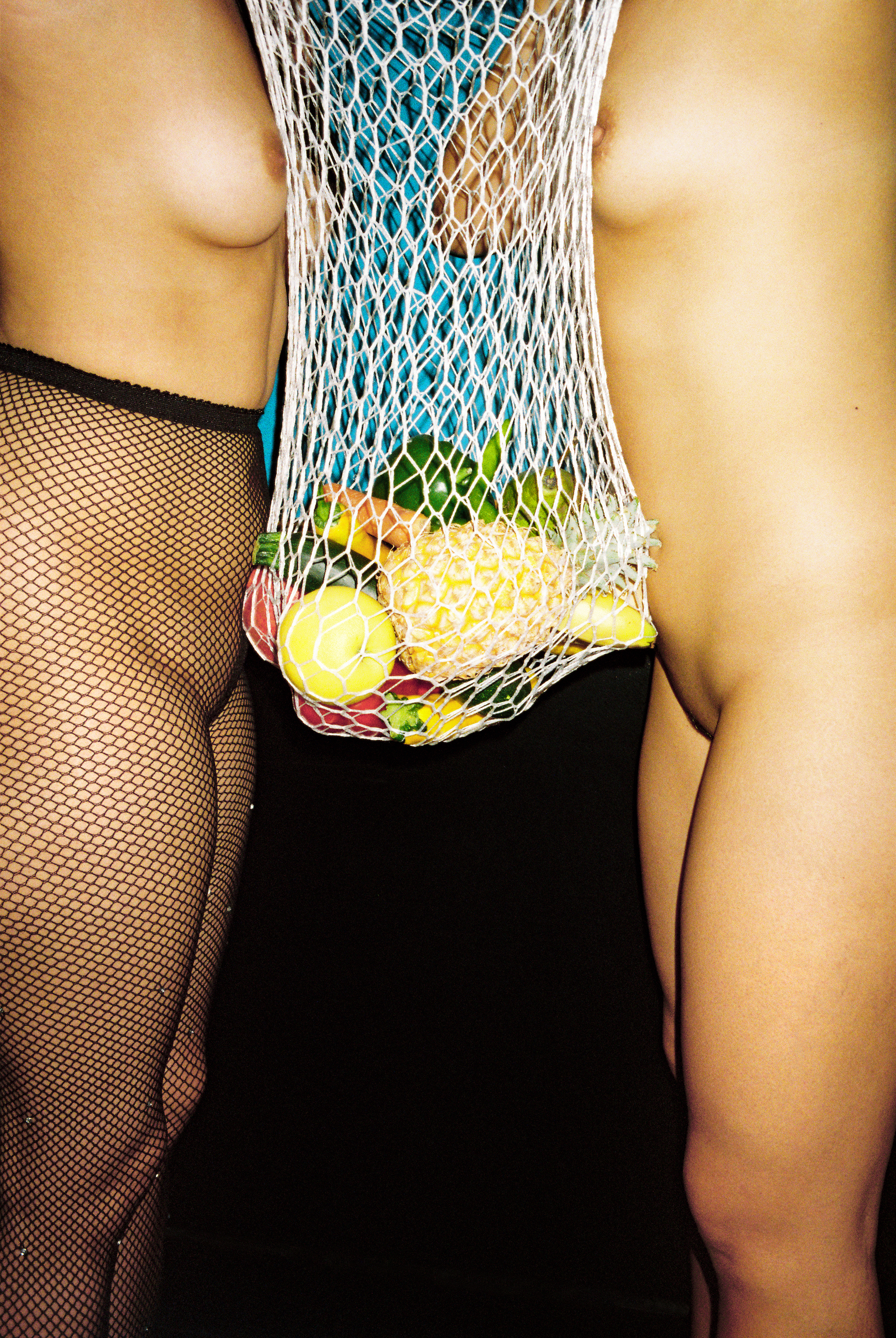
Through Instagram it looks like you travel a lot. How does a new location give you a sense of possibility?
It’s easy to take pictures of urban lifestyle and friends, but it’s a challenge to travel to a wild place. I spend maybe three or four months per year traveling. I like going to not-popular countries. I went to Vanuatu, a small country in the South Pacific, close to Fiji. It’s very small. I never heard about it before I went there! It’s really wild. I wanted to see the active volcano. You can drive up; it’s about a half hour to the top; it’s amazing. Actually I don’t really like Europe — it is always the same! Although I love Berlin — it’s very underground. I like Madagascar — you can see a lot of monkeys. And also chameleons. They’re like small dragons! There are lots on the street. If they come up to my green shoes, they turn green.
What about living in Beijing; what’s the local creative scene like?
I went to lots of parties before in Beijing — but now Beijing is really boring. It’s too political. If you want to have a party, you have to apply to the government.
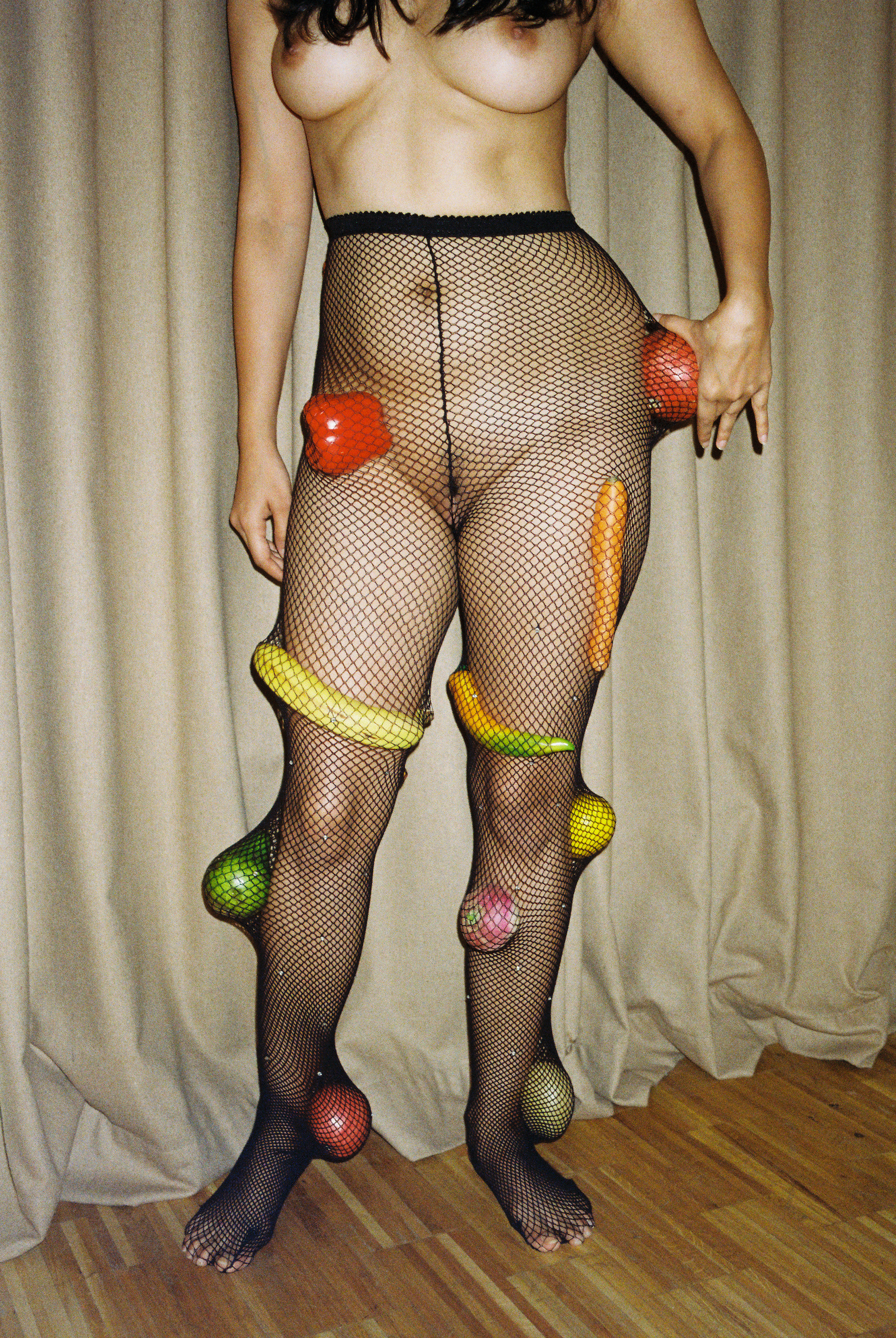
You’ve been censored by Chinese authorities before. Do you ever feel creatively constrained?
I don’t worry! It’s pretty open for the gallery to show my works. But it depends — different galleries, different cities. Four months ago, I showed about 27 pictures at a gallery in Beijing with nudity. It was OK — no problem. Afterwards the same exhibition moved to another smaller city. Three pictures that had nudity were taken down by the government. I don’t know the details, but the curator told me.
I post my photography on Instagram. Instagram also censors nude pictures, so I have to make black squares. It’s funny. This picture was censored three times. The girl is holding a boy’s dick. Before I posted, I made a pixelated mosaic on the dick so you can’t see the details. Finally I made a big black square on it [because they kept taking it down]. It’s funny. In my interview in Unseen Magazine [Issue 5] from Amsterdam, there’s my photo of four girls who are naked; only one shows her nipple. It’s just a magazine picture — it was censored online. It’s fine, no problem. I live in social media; I have to follow their rules. I remember at a magazine shop in China, naked pictures in foreign independent magazines were colored over with a pen!
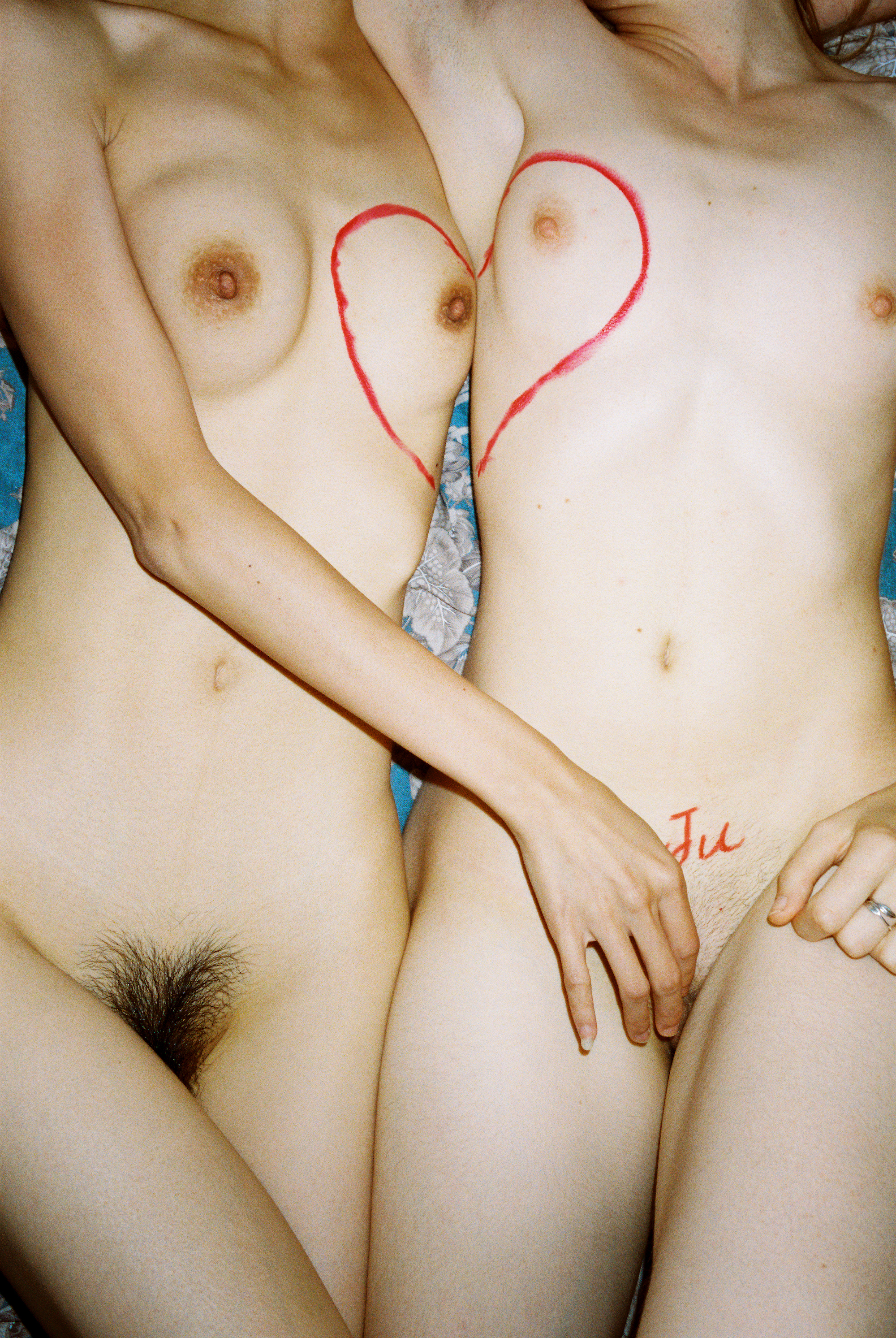
Like manually defaced?!
It’s funny right?! That was years ago. It was sketchy.
Your new book of photos, Sour Strawberries , actually directly addresses censorship, but in a cheeky way.
Yes, the concept is about being censored. You have to peel a layer of pixelated mosaic off to see the real pictures. Every picture you have to cut — to uncensor — to see.
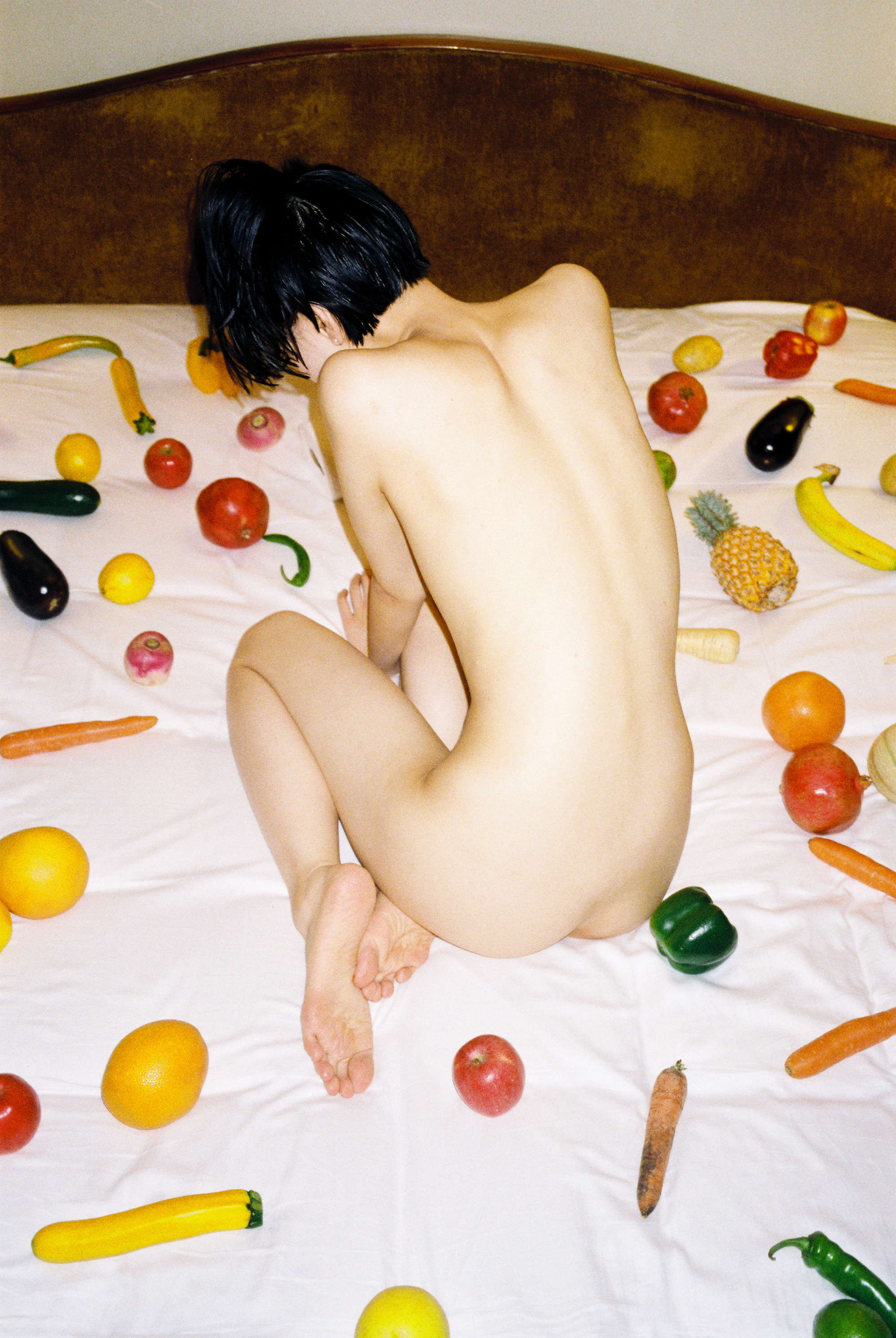
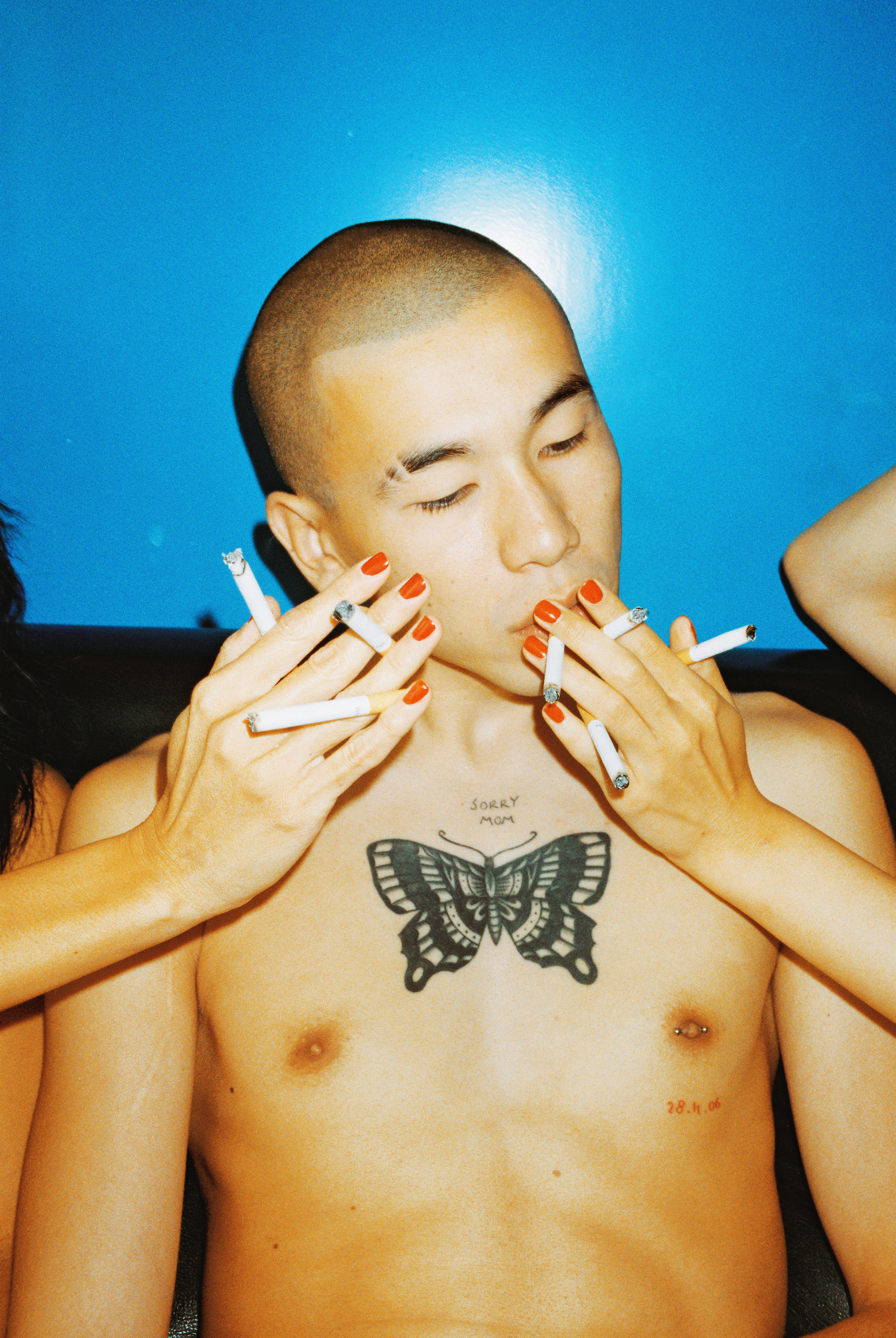
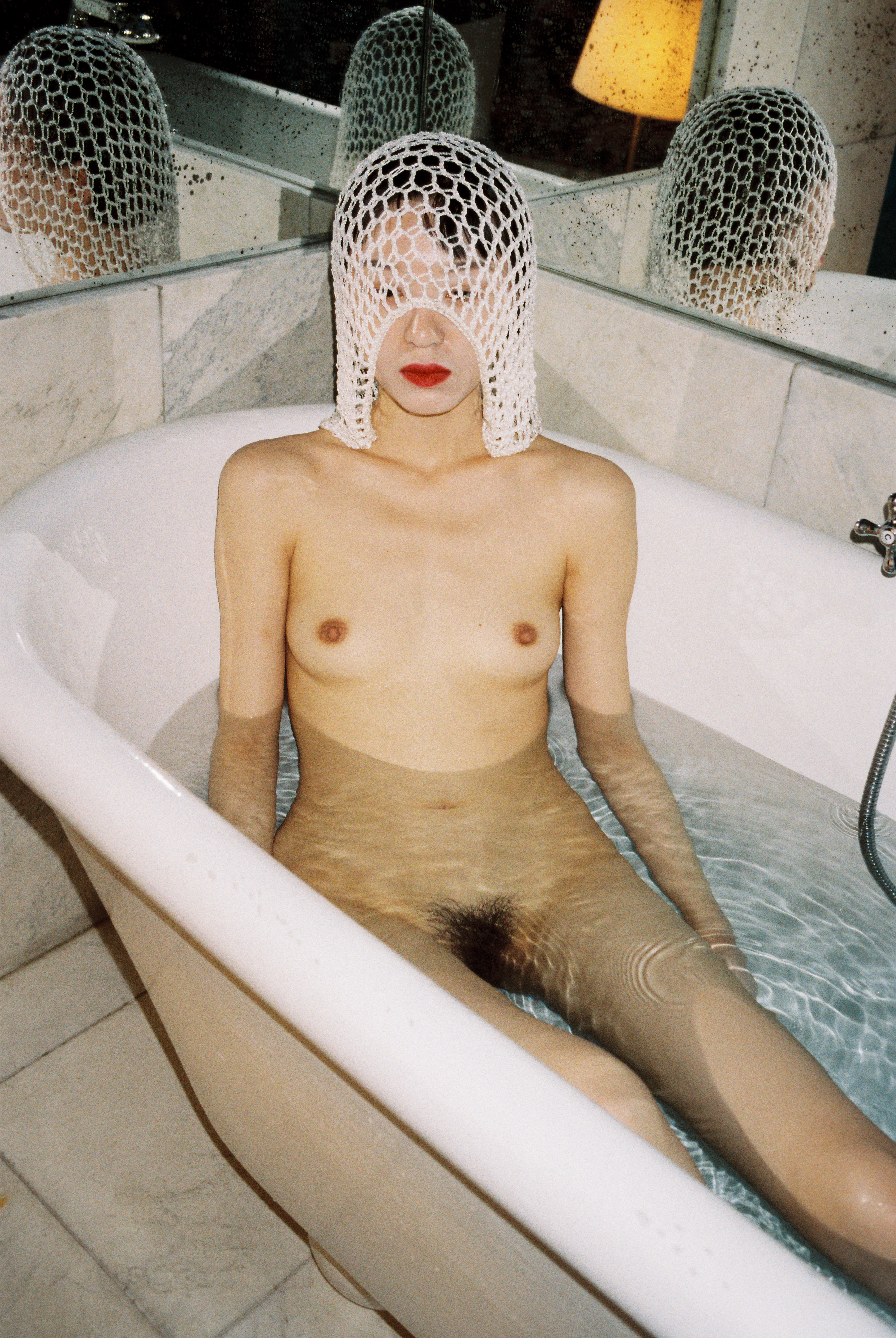
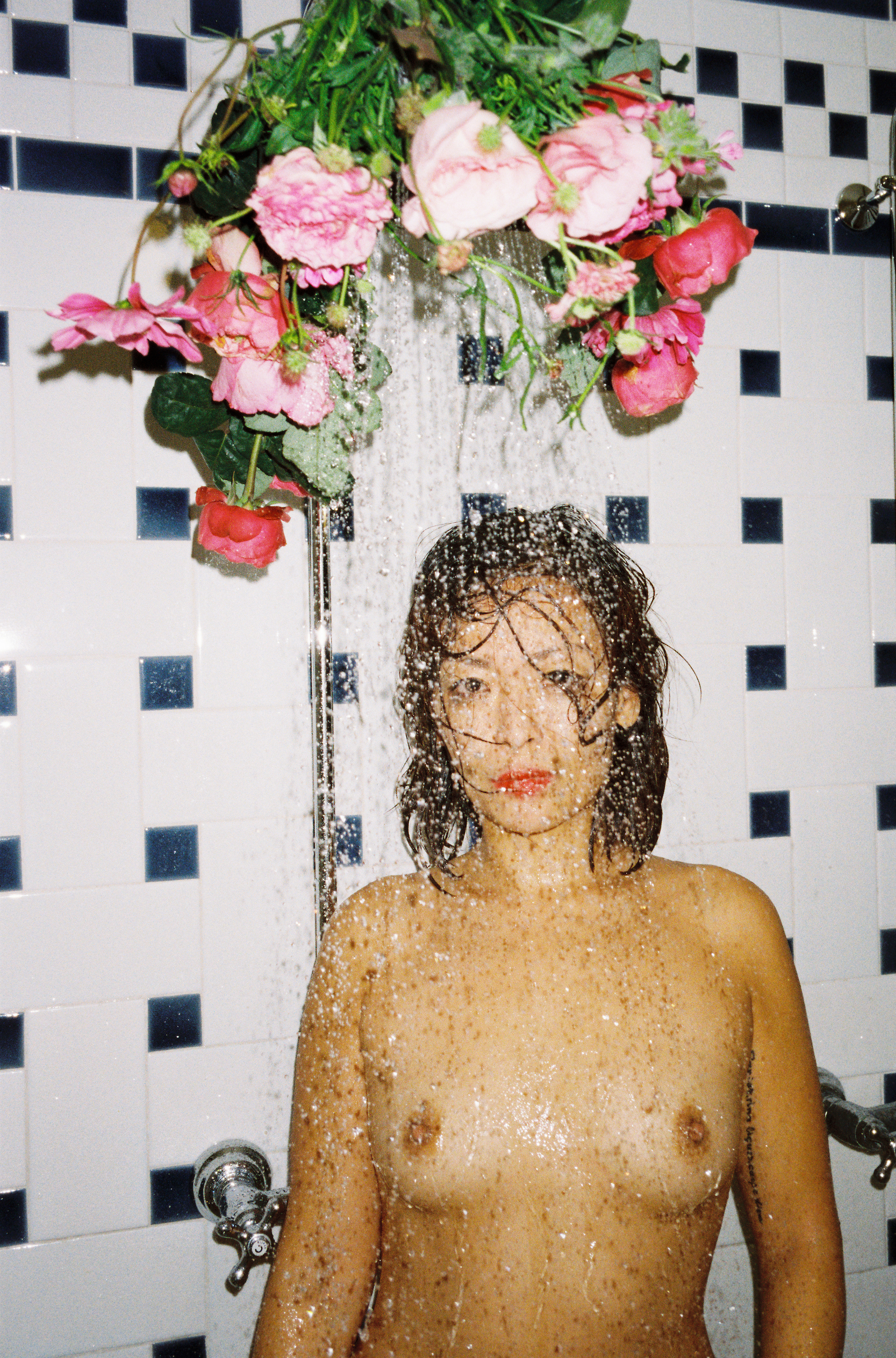
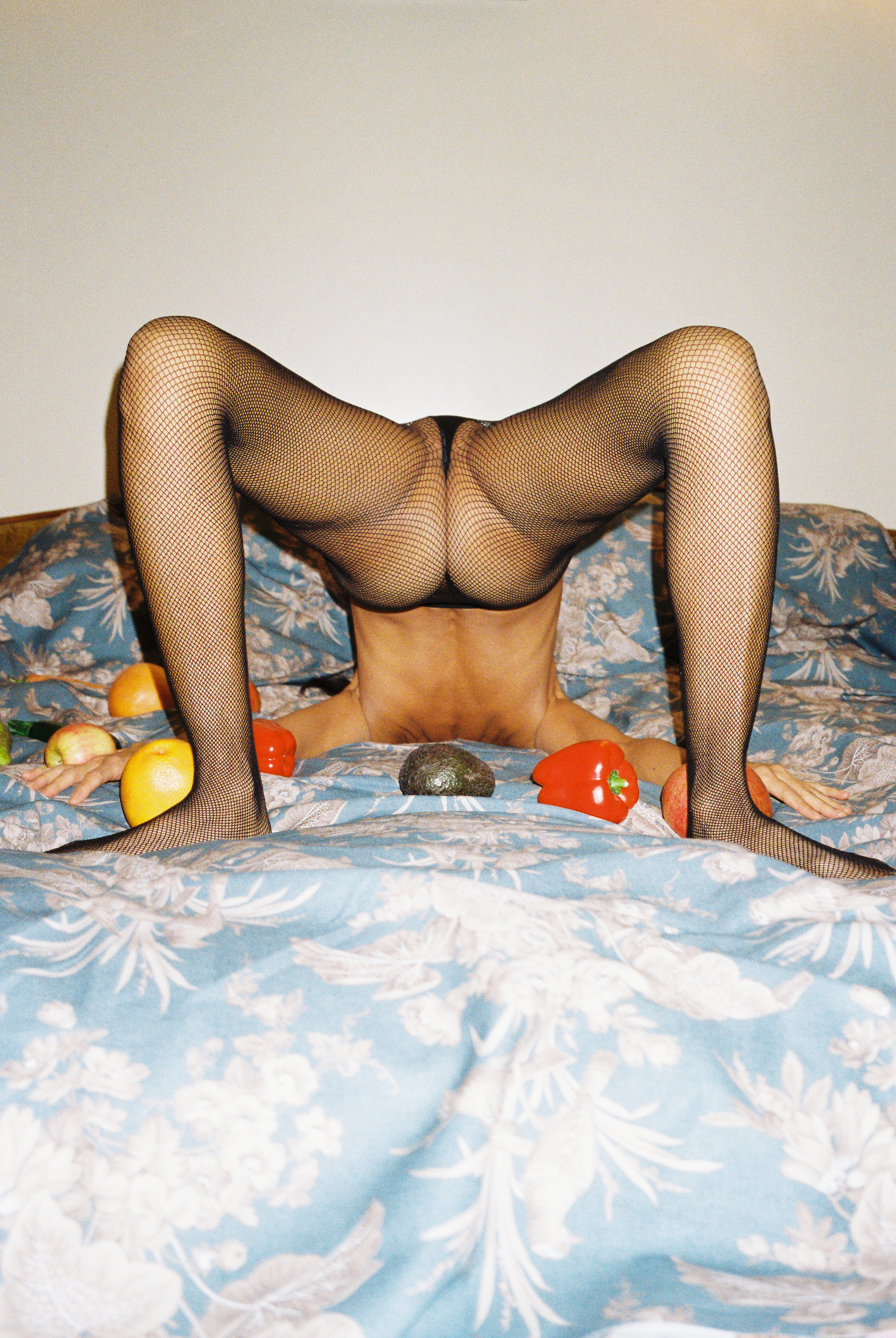
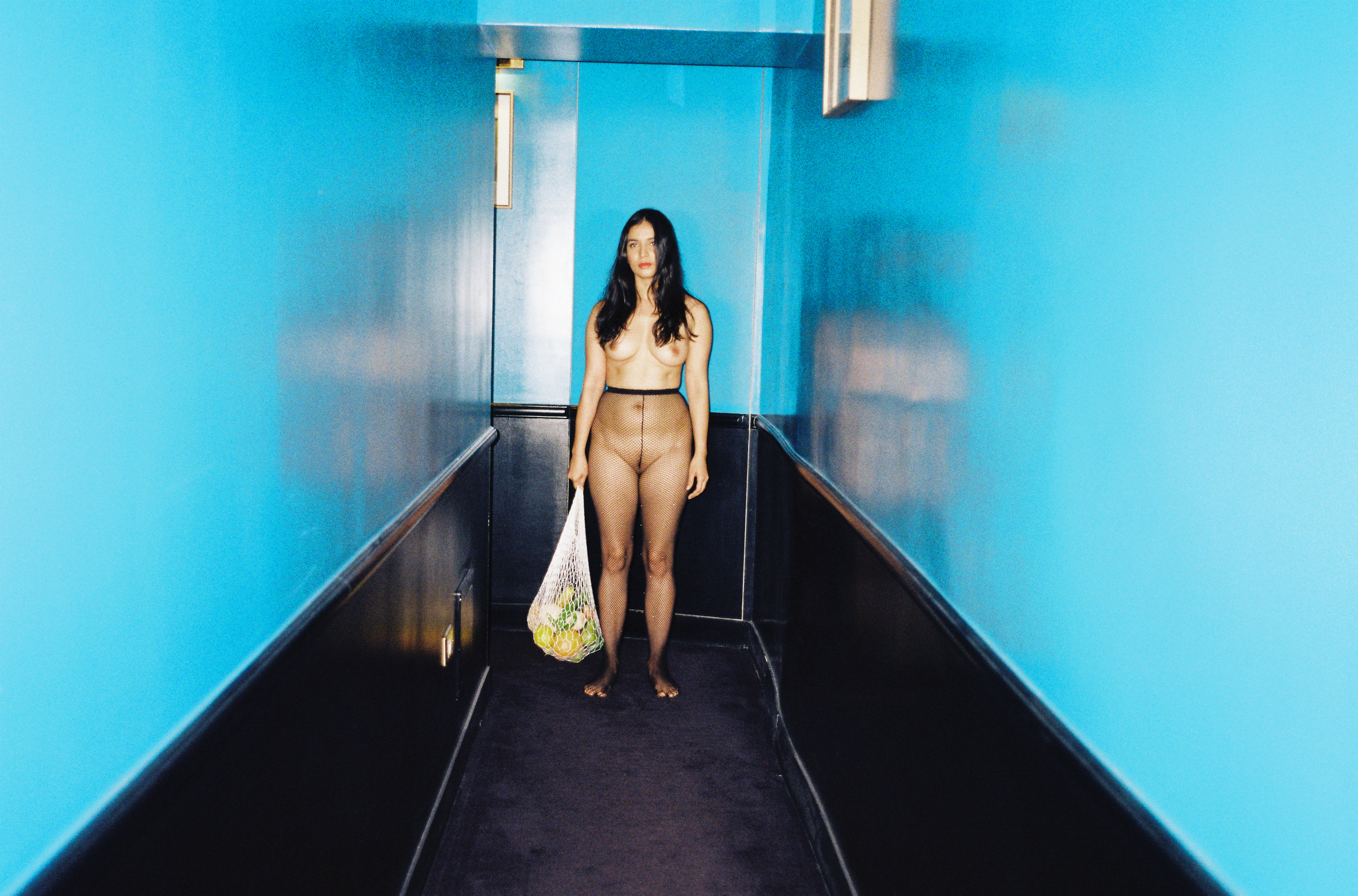
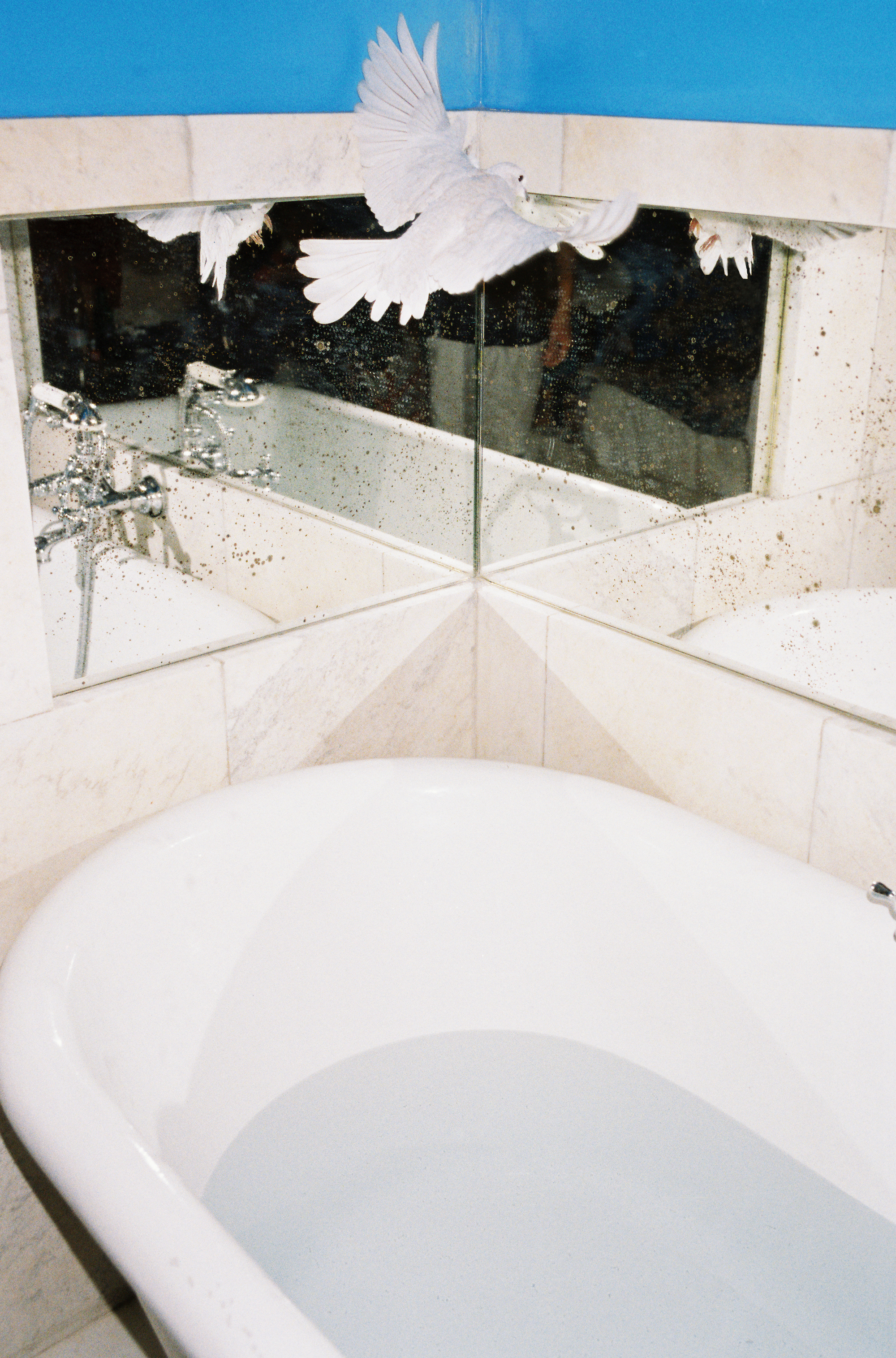
More
From VICE
-

(Photo by Michael Ochs Archives/Getty Images) -

Photo: Vladimir Godnik -

Screenshot: Chucklefish -

(Photo by Group4 Studio / Getty Images)
